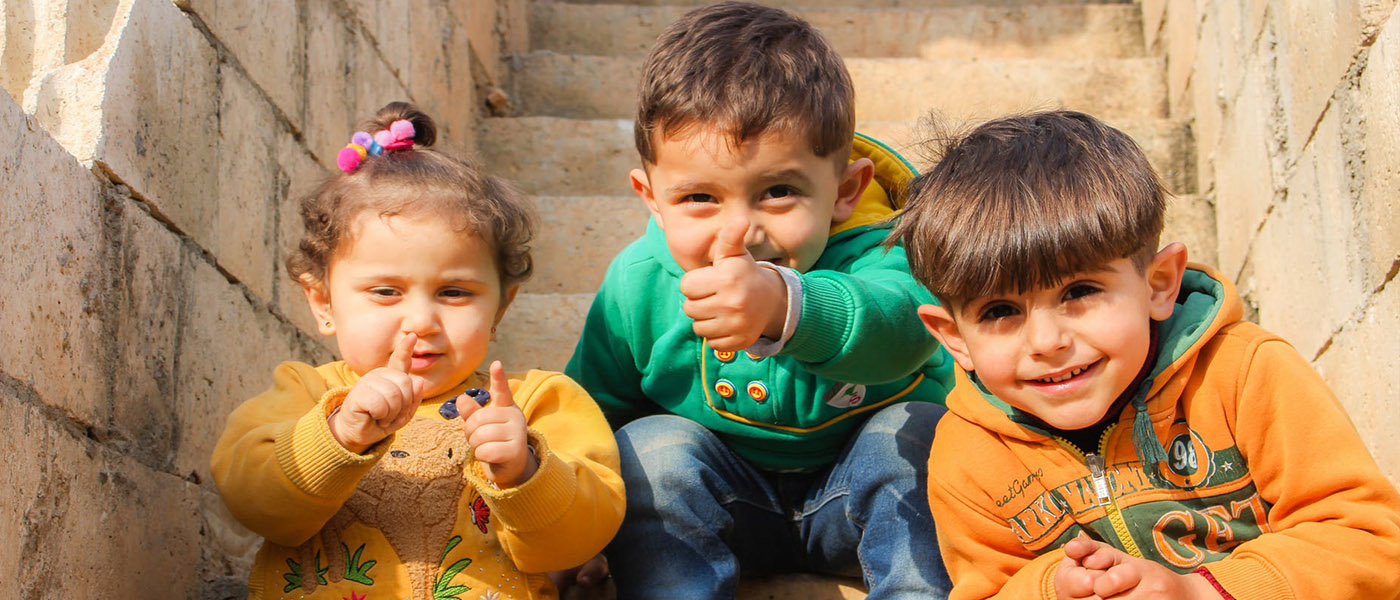

Mutual Responsibilities in the Islamic Family
Getting married, yesterday’s girl and boy become today’s husband and wife; they form the most basic and important foundation in the society in which each of them is bound to perform certain duties. In this peaceful and calming bond, namely the Islamic family, no person is superior to the other, and no responsibility is more vital than the one of the other; they both form the pillars of a firm foundation and are two equal sides of a scale which hold it in balance. Nevertheless, there are some certain tasks in which both husband and wife should participate; Actually, mutual responsibilities which Islam emphasize are really easy.
Affability in Behavior in the Islamic Family
The very first duty that has been defined for husbands and wives mutually is affability in behavior [1]. In other words, they should act in a kind and respectful manner toward each other, speaking with dignity and affection, understanding each other’s needs and feelings, being ready to comfort one another in times of hardship, and sharing their joy in times of happiness. Also, they should consult in their affairs with each other and respect one another’s views and decisions.
Furthermore, honesty and faithfulness are among the most important characteristics that both husbands and wives should observe in their married life. They should try to be as open as possible to one another and avoid hiding things from each other. Otherwise, there may arise a feeling of suspicion and insecurity between them.
Cooperation and Mutual Responsibilities in the Islamic Family
Despite many misunderstandings, Islam does not consider housework the responsibility of women and condemns the men who force their wives to do so. On the contrary, Islam obliges both husbands and wives to participate in this task and help one another in doing it, rather than leaving the whole burden on the shoulder of one person only [i] [2]. They should also cooperate in upbringing their children and reach unity in their behavior and speech toward them so that the feeling of harmony and comfort will spread in the family.
Beautiful Appearance in the Islamic Family
Besides, for husbands and wives to be always attracted to one another in an Islamic family, both of them should appear as clean and beautiful as possible in front of each other [3] & [4]. For instance, they should wear the best clothes they have got, wear perfume, adorn their hair, etc.
As a result, the love between them will increase, and they will feel more secure. Also, when the need for physical attraction is satisfied in the private environment of married life, neither husband nor wife will feel the desire and urge to satisfy this need in other unlawful ways.
Finally, for a marriage to be successful and healthy and form the recommended Islamic family, both husbands and wives should attempt to do whatever is best to save this holy bond. For sure, this is not an easy job; it takes self-sacrifice, patience, hope, and optimism.
Regarding mutual responsibilities, you should know that you may sometimes feel tired, disappointed and hopeless but at the end of the day, when you look at your spouse, feel the love in him/her and think about the beautiful life that you can build with him/her, you will be surely willing to pay any expense to make this come true.
Notes:
[i]. Whenever Imam Ali – pbuh- found a chance and was free, would come and help his wife Fatimah- pbuh- in the housework. One day Prophet Muhammad came to their house and saw they were working together and asked:” Which one of you are more tired so that I take his/her place?”, Imam Ali –pbuh- answered: “ Fatimah is more tired.” Our kind prophet gave Fatima rest and continued her work himself[3].
References:
- (4:19)
- MirzaHossein Noori, Mustadrak al-Vasael, V.13, P.48.
- Morteza Motahari, Dastan-e- Rastan, V.2, P.252.
- Shaikh al-Hur al-Aamili, Wasail al-shiah, V.20, P.158.
- Muhammad ibn Ya‘qūb al-Kulaynīm, Usul al-Kafi, V.5, P.511.
Share This Article

The Kind Nurse
“Your Lord has decreed that you shall not worship anyone except Him, and He has enjoined kindness to parents. Should they reach old age at your side one of them or both do not say to them," Fie!" And do not chide them, but speak to them noble words” (17:23). Sitting on the porch of her house, with a deep frown on her face, she seemed absorbed by some unending thoughts. She did not know where she was, neither the boy who was so kindly and attentively taking care of her like a kind nurse, nor the deep unknown feeling that steered within her when he helped her. The only thing she remembered, was that her beloved husband had died and she was left alone.
It had been so many years since the mirror in her room reflected the view of a white-haired, withered, old woman sitting in a wheelchair. But still, she wanted to solve the mystery of the boy’s identity. “Someone must have hired him to take care of me,” she thought. “But who? I’m sure I have no one.”
Instantly, the door of the house opened, and the mysterious young nurse appeared, wearing a big and cheerful smile and a warm, loving look on his face [i][ii] [1]. He had brought her pills. As usual, he put the pills one by one and patiently in her mouth and gave her water to swallow them.
Then kissed her on the forehead and hugged her tightly. She remembered the days when she did not feel good. When she shouted and cursed him violently. She also remembered his patient face at those moments, when he was trying so hard to hold back his tears, taking her hands and kissing them. “What kind of a nurse is he?” she wondered. Respect was an inseparable part of his behavior toward her, always observing not to raise his voice, not to walk ahead of her, and not to act in a way that would make her feel ashamed and humiliated [iii] [2].
She did not remember if she had ever asked him who he was. So, she gathered her courage to ask and went inside. Entering the house, she saw a man sitting on the couch, arguing on an apparently serious matter with her nurse. “Let’s not bother them,” she thought and turned her wheelchair toward her room, but suddenly something caught her attention.
The man was shouting so she could not help hearing his words: “she does not remember you, not even your name and you are wasting your time here nursing her? What about your job? You are a successful manager for GOD’s sake!” The old woman turned to the boy to see his face. For the first time, she saw the look of rage in him: “She doesn’t, but I do. She is my mother, and I will take care of her to my last breath. “For the record, I became what you say I am, because of her.”
He suddenly felt the weight of the old woman’s look on him. Tears fell on her cheeks irresistibly. After all, the mystery had been solved: her kind and a generous nurse was her loving son, her one and only child.
The next day, when she woke up, the first thing she wanted to see was the face of her nurse, his smile, his kind look. She did not know his name or that why he was there, but she felt sure that her patient, loving and a nice nurse would never ever leave her alone.
Notes:
[i]. The Messenger of Allah (peace be upon him and his family) said: “Every righteous child who casts a look of mercy and affection upon his parents shall be granted, for every look of his, Rewards equivalent to that of an accepted Hajj.”
[ii]. The Messenger of Allah (peace be upon him and his family) has said: “The look of a child towards his parents out of love for them is an act of worship.”
[iii]. Imam as-Sadiq (peace be upon him) has said (in regards to one’s parents): “Do not cast your gaze upon them except with love and compassion; do not raise your voice above theirs; do not raise your hands above theirs; do not walk ahead of them.”
References:
- 'Allama Majlisi, Bihar al-Anvar, V. 74, p. 73
- ibid, V. 74, P. 79
Read More

Be Kind to Children
A wealthy man went to Prophet Muhammad's (PBUH&HP) home to visit him. While they were speaking, the Holy Prophet (PBUH&HP) sat his grandchild, Hussain (AS) on his lap and started kissing him. The man was looking at the Prophet’s behavior toward the child in wonder. He said sadly “I have some children, but I have never kissed them.”
The Holy Prophet (PBUH&HP) became upset and said, “What should I do when Allah has removed mercy from your heart”.
This short story explicitly reveals Islam’s emphasis on respectful and kind behavior toward children as the builders of society’s future. This short piece of writing is going to talk about kindness to children.
We are the ones who draw the picture of our children’s lives; it is our choice to draw a beautiful or an ugly one. A child, who lives in an integrated, peaceful, and kind family, undoubtedly enjoys a more lively spirit than his other peers who do not have the opportunity to live in such families.
Psychoanalytically speaking, you might have heard a lot about the role of kindness in upbringing children, as well as its impact on their future. Now let's take a look at what Islamic leaders have said about this issue.
How can be kind to children?
If you have a child or know a child around you, you might find this saying of Imam Sadiq (AS) with regard to children interesting: “Love your children and be kind to them, and if you promise them, keep your promise, for they know nobody but you as their providers”. Imam Sadiq (AS), besides emphasizing kindness toward children, draws our attention to the importance of keeping our promise to children. As children, with their pure nature, are not yet aware of the concept of breaking promises, if the older ones commit this act, they will learn from them and copy their behavior. As a result, imitating this wrong deed will have damaging effects on the child’s spirit.
In another quote from Imam Sadiq (AS), he said: “The one who kisses his child, Allah will give him a reward in the hereafter, and the one who makes his child happy, Allah will make him happy in the resurrection day”. He also said: “Kiss your children a lot because each kiss will raise your statues in front of God”.
There are a lot of narrations and traditions about kind behavior toward children in reliable Islamic sources. In the end, it is noteworthy that the Holy Prophet (PBUH&HP) has emphasized a lot on playing with children in a very childish way as if you are a child yourself; this point of view is a modern psychological approach which our Prophet (PBUH&HP) mentioned 1400 years ago.
The holy prophet Muhammad (PBUH&HP) said: “be close and friendly to your children and hug them”.
Read More

